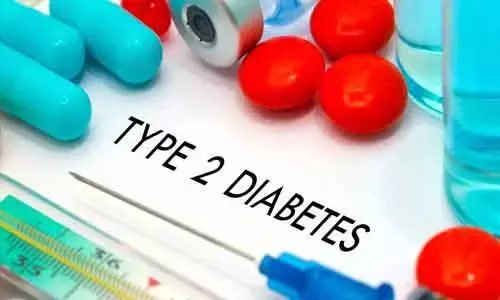- Home
- Medical news & Guidelines
- Anesthesiology
- Cardiology and CTVS
- Critical Care
- Dentistry
- Dermatology
- Diabetes and Endocrinology
- ENT
- Gastroenterology
- Medicine
- Nephrology
- Neurology
- Obstretics-Gynaecology
- Oncology
- Ophthalmology
- Orthopaedics
- Pediatrics-Neonatology
- Psychiatry
- Pulmonology
- Radiology
- Surgery
- Urology
- Laboratory Medicine
- Diet
- Nursing
- Paramedical
- Physiotherapy
- Health news
- Fact Check
- Bone Health Fact Check
- Brain Health Fact Check
- Cancer Related Fact Check
- Child Care Fact Check
- Dental and oral health fact check
- Diabetes and metabolic health fact check
- Diet and Nutrition Fact Check
- Eye and ENT Care Fact Check
- Fitness fact check
- Gut health fact check
- Heart health fact check
- Kidney health fact check
- Medical education fact check
- Men's health fact check
- Respiratory fact check
- Skin and hair care fact check
- Vaccine and Immunization fact check
- Women's health fact check
- AYUSH
- State News
- Andaman and Nicobar Islands
- Andhra Pradesh
- Arunachal Pradesh
- Assam
- Bihar
- Chandigarh
- Chattisgarh
- Dadra and Nagar Haveli
- Daman and Diu
- Delhi
- Goa
- Gujarat
- Haryana
- Himachal Pradesh
- Jammu & Kashmir
- Jharkhand
- Karnataka
- Kerala
- Ladakh
- Lakshadweep
- Madhya Pradesh
- Maharashtra
- Manipur
- Meghalaya
- Mizoram
- Nagaland
- Odisha
- Puducherry
- Punjab
- Rajasthan
- Sikkim
- Tamil Nadu
- Telangana
- Tripura
- Uttar Pradesh
- Uttrakhand
- West Bengal
- Medical Education
- Industry
ADA 2020: Empagliflozin reduces insulin need in diabetes patients

Delhi: Treatment with the SGLT2 inhibitor empagliflozin reduces dependency on insulin in patients with type 2 diabetes (T2D) and cardiovascular disease (CVD), a recent study has suggested. The findings of the landmark EMPA-REG OUTCOME trial were presented at the American Diabetes Association 80th Scientific Sessions held from June 12-16, 2020.
According to the study, EMPA markedly delayed the need for insulin initiation in those recently diagnosed and reduced the need for large doses in those already on insulin treatment.
The results are deemed significant as the use of insulin in diabetes patients increases the risk of weight gain and hypoglycemia. Moreover, insulin treatment can be expensive, requires training, and is not generally preferred by patients. Thus, reducing insulin dependency seems beneficial for both practitioners and patients.
Muthiah Vaduganathan, Brigham and Women's Hospital Heart and Vascular Center, Boston, MA, and colleagues deployed 7020 patients in the trial. The patients were treated with empagliflozin (EMPA) 10, 25 mg, or placebo (PBO). They were followed for a median of 3.1 years. Changes in background glucose-lowering therapy were allowed after the first 12 weeks. They assessed treatment effects of pooled EMPA vs. PBO on time to new initiation of insulin among insulin-naïve patients and time to total daily insulin dose increase by >20% among insulin-treated patients.
Key findings of the study include:
- In 3633 (52%) insulin-naïve patients, EMPA reduced need for insulin use vs. PBO by 54% (11.1% vs. 22.3%; HR 0.46), adjusted for key covariates.
- In 3387 (48%) patients using insulin at baseline, EMPA reduced need for a >20% increase in insulin dose by 57% (19.1% vs. 36.8%; HR 0.43).
- Reductions in incident insulin use was most pronounced in patients within 5 yrs of T2D diagnosis (HR 0.31 compared with T2D duration of >5-10 yrs (0.42) or >10 yrs (0.56).
In patients with T2D and CVD EMPA markedly and durably delays the need for insulin initiation, more so in those recently diagnosed, and reduces the need for large dose increases in those already using insulin.
Reference -- ADA 2020 Abstract 30-OR. Empagliflozin Delays Need for Insulin Initiation in Patients with Type 2 Diabetes and Cardiovascular Disease: Findings from EMPA-REG OUTCOME
Dr Kamal Kant Kohli-MBBS, DTCD- a chest specialist with more than 30 years of practice and a flair for writing clinical articles, Dr Kamal Kant Kohli joined Medical Dialogues as a Chief Editor of Medical News. Besides writing articles, as an editor, he proofreads and verifies all the medical content published on Medical Dialogues including those coming from journals, studies,medical conferences,guidelines etc. Email: drkohli@medicaldialogues.in. Contact no. 011-43720751


